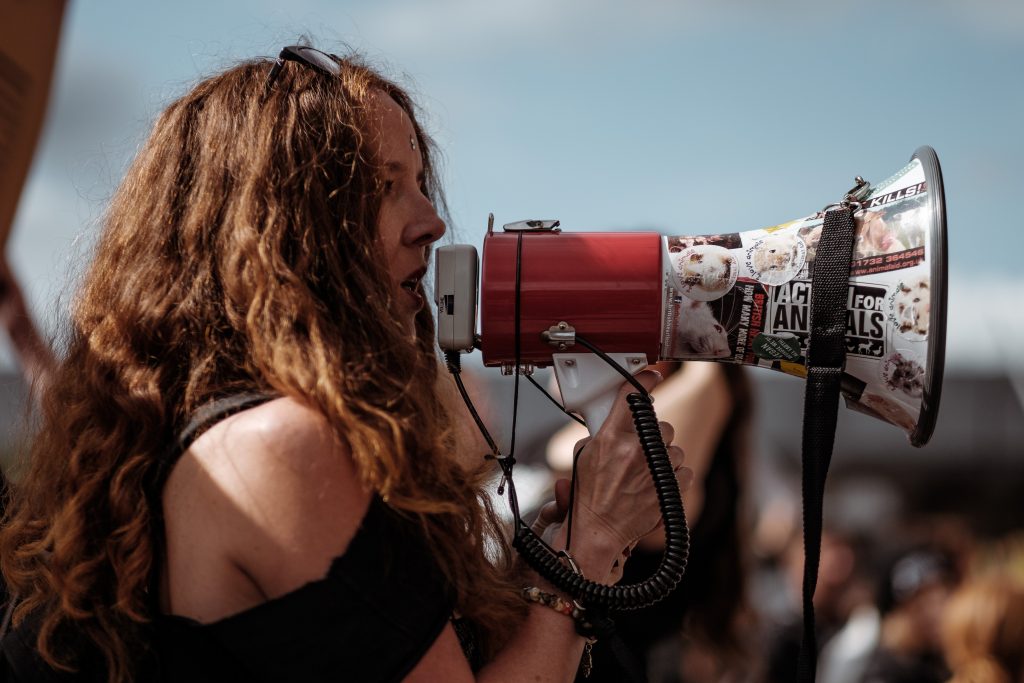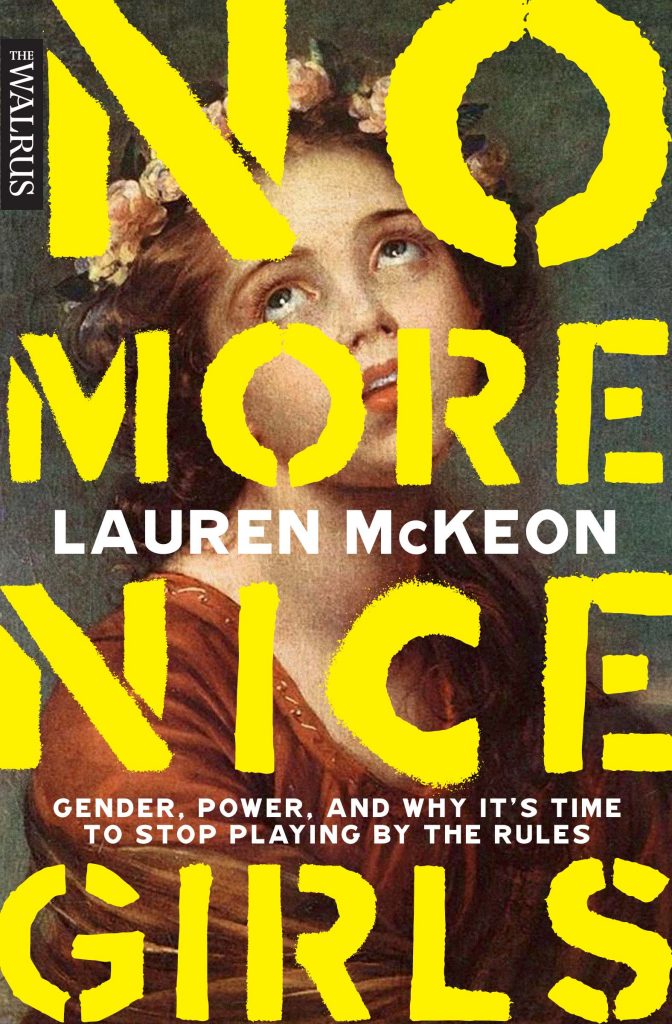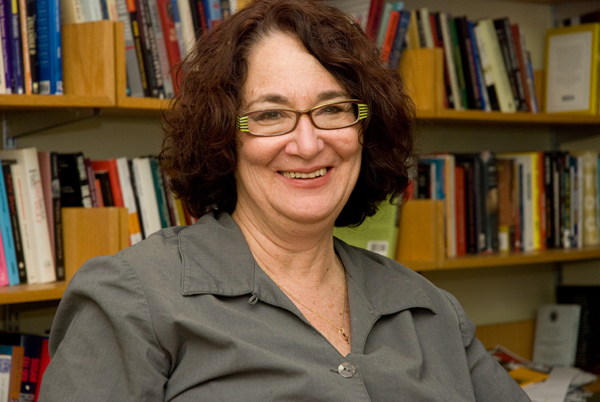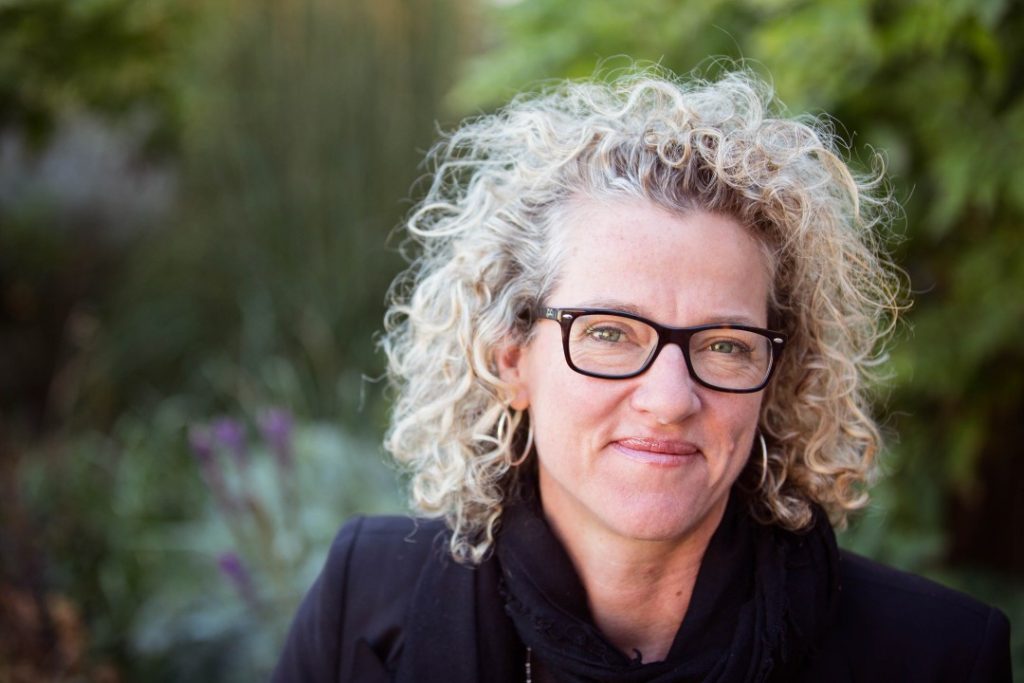
Gurbeen Bhasin grew up hearing stories of her great grandmother’s aangen (Sanskrit for courtyard) in Bombay, India. Traditionally, mothers and grandmothers gathered in this section of an Indian household to pickle foods, organize religious get-togethers and weddings, enjoy tea, and gossip with neighbours. The aangen became the site of a Wednesday morning tradition: She welcomed neighbours—irrespective of caste, class, or religion—which developed into a sisterhood community sharing joys and sorrows and helping each other solve domestic issues.
Bhasin’s grandmother continued the tradition when the family moved to Iran, as did her mother when the family fled to Canada after the Iranian revolution in 1979 when Bhasin was just eight. Gatherings in the family’s Toronto condo became help sessions for immigrant women in need. That planted the seed for what would become Bhasin’s Aangen, a unique non-profit social enterprise that employs 44 staff and at-risk people in four income-stream businesses. It also runs a community kitchen that prepares meals for several homeless shelters and helps impoverished kids attend school in Nigeria.
It’s an aangen on a grand scale, infused with “the soul of my great grandmother,” as Bhasin puts it, and a balm to her own childhood experience of losing nearly everything and being torn from her home, family, friends, and sense of belonging in her birth country of Iran.
Bhasin, who turned 50 this year, recently held an anniversary bash to celebrate opening Aangen’s doors 20 years ago, which is headquartered in a three-storey detached house on Dovercourt Road in the west end of downtown Toronto. She and her partner live on the second storey of the house with their son, who begins training to be a chef at George Brown College this fall.
From the start, Bhasin’s mission was clear: to be a non-profit that supported community needs but would do so through social enterprises rather than relying on grants.
Her “aha” moment came when she was interning in the University of Michigan’s Department of Social Services after completing a master’s in social work there. As a student, Gurbeen volunteered serving meals to the homeless, which re-ignited her passion to help others in need. While reviewing grant applications, she would often find herself calling applicants to advise them about including certain buzzwords that might help them win funding. Why did viable community projects have to beg and bend to political protocols in order to do good work? To Bhasin, that defied logic. “Social work is meant to serve the community. It’s not about writing grants, which is like wasted energy in creating systems of dependency that are not going to last,” she says.
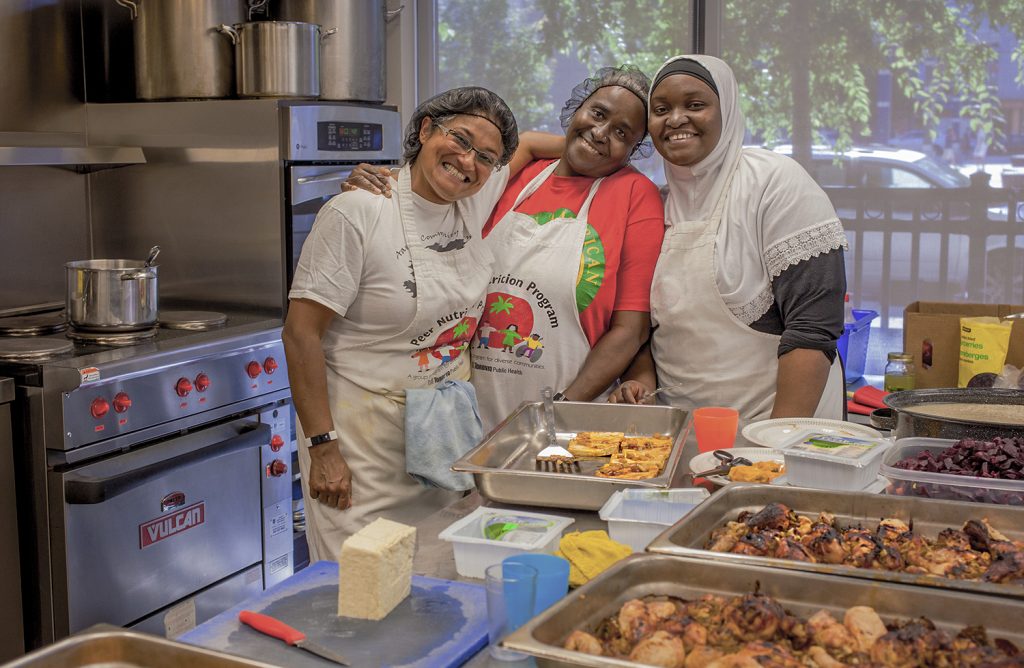
By contrast, Aangen generates a sustainable, ongoing income stream by running an eclectic mix of businesses. One, started by Bhasin’s mother in the early 2000s, sells tea to health professionals and retail outlets. Another buys butter, eggs, honey, and maple syrup from Ontario farmers within 100 kilometres and resells them to two dozen cafes and local restaurants. Aangen also offers wellness and communications workshops for a fee, and the revenues in turn funds Aangen’s community service work. Its Chance for Change program is a residential and commercial cleaning service that employs refugees and people struggling with mental illness, homelessness, and addiction. When a staffing firm asked her to handle their payroll, Bhasin added that service to the mix.
“I call us the land for misfit toys,” jokes Bhasin. “That’s what we are, starting with me. I do not fit in anything else. Everyone came to us for a reason and we all kind of don’t fit in a bank or a retail store. We’re like dropouts.”
Revenue generated from each business pays Aangen’s administration, overhead, and staffing costs. Any donations made to Aangen go directly to supporting its end users, for example, by paying rent, utility bills or groceries for recipients in its Families in Need program.
Like so many of Aangen’s endeavours, that kitchen came about in response to a cry for help. During an extreme cold spell in the winter of 2018, a downtown social services agency contacted Bhasin with a desperate request. “They had 300 homeless people and they needed food. The moment I heard people were hungry, I sprang into action,” says Bhasin. She immediately reached out to Toronto Deputy Mayor Ana Bailão, one of the many ardent supporters of Aangen’s work. Bailão offered up space once used to cook food by Parkdale Public Health, which had been shuttered by Premier Doug Ford’s budget cuts. Since then, Aangen has been running a commercial kitchen from the rent-free space, where it prepares meals for Toronto’s homeless. In the two-yer period from January 2018 to December 2020, it served half a million meals.
With so many different ventures, Bhasin realized she needed her own aangen of problem solvers and supporters, so she put together a unique governance model by operating two types of boards: a board of directors with authority to oversee the non-profit community kitchen (which includes the power to remove the executive director), and an advisory board for the income-stream social enterprise.
Each member on the social enterprise advisory board, which now consists of eight members chosen by Bhasin and her executive team, brings experience, knowledge, and contacts from a broad spectrum of networks within the Greater Toronto Area (GTA) and internationally. They share Bhasin’s passion for food security and community welfare while adding specialized expertise. “I have actively sought skills that I don’t have. I don’t have a business background. I don’t have a legal background. I don’t have a financial background. But I know more about social work and social enterprise than any one of them. It’s really a supportive role that the board plays rather than a punitive one,” she says.
Aangen’s integrated board meets periodically in person and online to discuss ongoing and upcoming projects, which can be diverse. “Because we do not depend on grant funding, we have the flexibility to evolve in a way that’s not typical to the [non-profit] sector,” says Bhasin.
Dr. Sairupa Krishnamurti, a naturopathic doctor, joined the board in 2015. She had been facilitating wellness workshops at Aangen since 2010. “With our separate professional networks, we are able to bring in more fundraising ideas,” says Krishnamurti. “If a board member were to leave, they are not replaced immediately. The system works more fluidly based on what Aangen’s needs are at that point.”
For instance, Bhasin wanted to strengthen her leadership skills so she invited Jennifer Love, CEO of One More Woman, a company that helps leaders grow and manage money better. Says Bhasin, “Having Jennifer on board was like getting an MBA in the work we’re doing.”
Aangen in Action
Despite all her business ventures, Bhasin is still very hands-on. When I caught up to her one Friday night, she was loading groceries into the trunk of her red sports car to deliver to a woman who had called the previous night for help; her four children were hungry, their pantry was empty. “This is why I love what I do,” says Bhasin, a diminutive figure, barely more than five feet tall, with a magnetic personality. After she loaded in cans of chickpeas and other non-perishable food items, we jumped in the car and stopped by the community kitchen to pick up more supplies for the desperate mother—a couple of bags of apples, red peppers, baby potatoes, and packets of green beans.
At the kitchen, Webb said that one of her farm vendors had bought the produce—just a few days old—at the Ontario Food Terminal for $15, then donated them to Aangen. “All these fruits and vegetables would have been thrown away, but they’re still good to eat,” says Webb. On that evening, Webb was prepping more of the donated produce—potatoes and onions—to cook meals for 100 people at a homeless shelter.
Having such flexibility and efficiency differentiates a non-profit social enterprise from a more traditional non-profit or charity, Bhasin points out. “Let’s say a donor gives us $100 and tells us that they want us to get groceries for people who can’t afford it. Because Aangen’s making money through its business side to cover administrative, overhead, and bookkeeping costs, we don’t need to skim off the top of that $100. The $100 goes into a separate bank account, a donation fund. And then, if a single mom calls to tell me she’s struggling to provide food for her kids, I can take the $100 to get her what she needs. That $100 is going directly to the end-user.”
With that explanation, Bhasin flies out the door to deliver the care package to the mother of four. While she is thrilled to help, she’s irked that such help is still needed. “It’s 2020 for God’s sake and we’re still talking about hunger,” she says, steering through rush-hour traffic. “This capitalist society is long overdue for failure. The rich are getting richer and the poor are getting poorer.”
And so the calls still pour in, and Bhasin gathers her Aangen to find solutions. Recently, she joined forces with Spiritan Self Awareness Initiative (SSAI) in Joy Village, a Catholic non-governmental organization (NGO) in Nigeria that provides menstrual pads to impoverished girls so that they can continue to attend school. Bhasin also helped Father Charles, founder of the SSAI, purchase farmland to grow food to feed the children, when he noticed that many of the children were coming to school hungry. Surplus produce from the farm also generates funds that sustain the charity’s work.
With her social enterprise achieving such impact, Bhasin figured there must be more to draw inspiration from, but that has not been the case. “I’ve looked globally, not just locally, and I’ve found it very hard to find one with a significant social impact,” she says.
Finally, we arrive at the mother’s apartment, just in time for supper. The mother is deeply relieved she can now feed her four children, all severely disabled.
Bhasin describes the work as akin to raising a child. “There are no breaks. There’s no downtime,” she says, adding, that she does it out of love “for my passion to help people who struggle to find belonging.”
In the time of Covid-19, LiisBeth is committed to sourcing stories that help us make sense of our new, emerging reality and stories about feminist changemakers who can help show us the way. If you enjoyed this article, please consider supporting our work. [direct-stripe value=”ds1562331144158″]
Related Reading
https://www.liisbeth.com/2019/08/15/risky-business-maybe-not/






